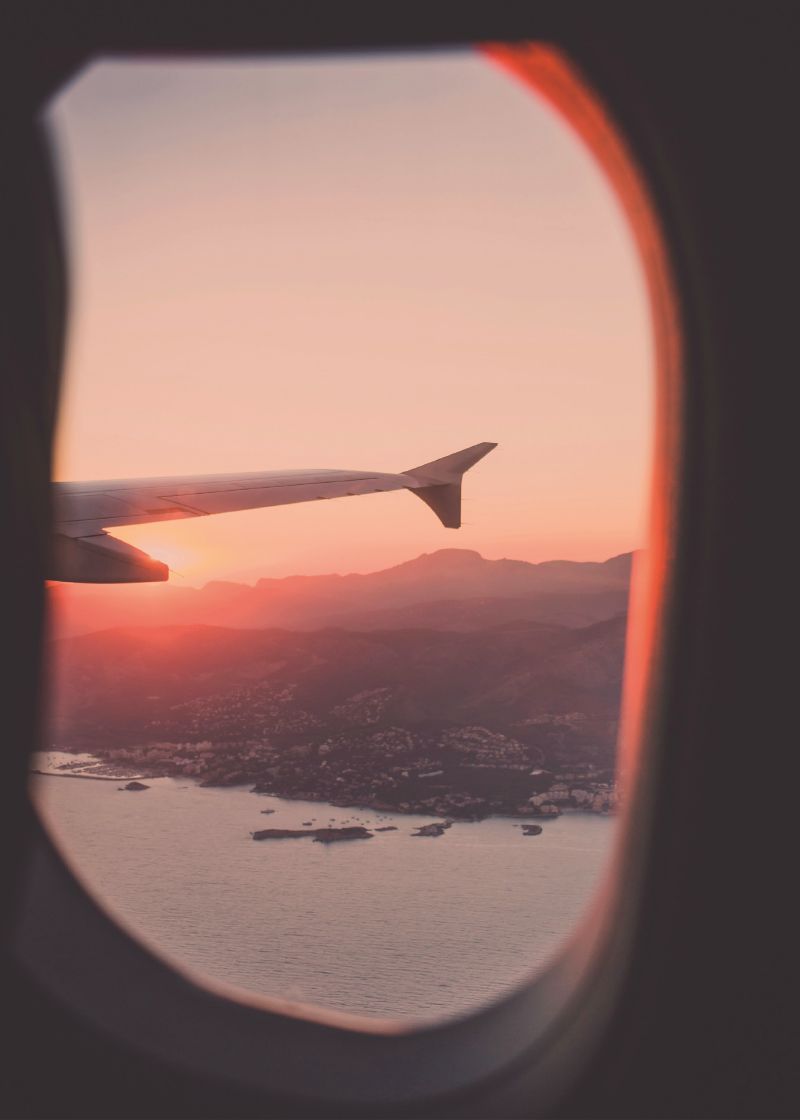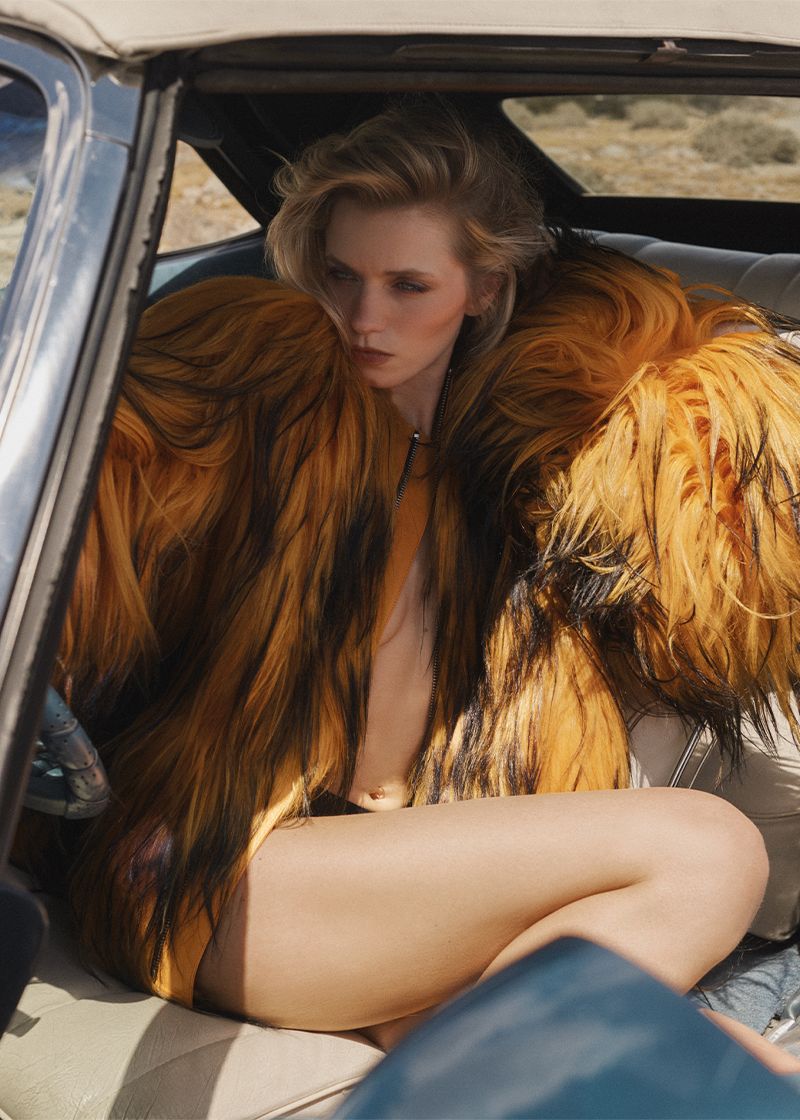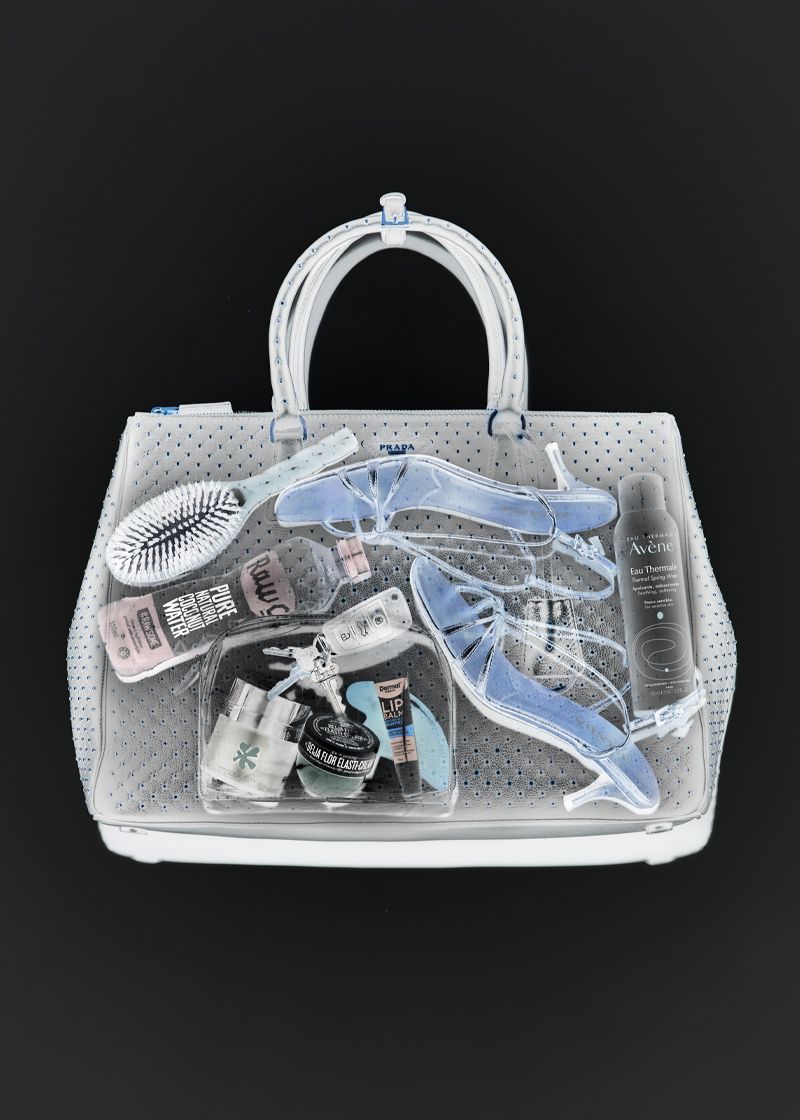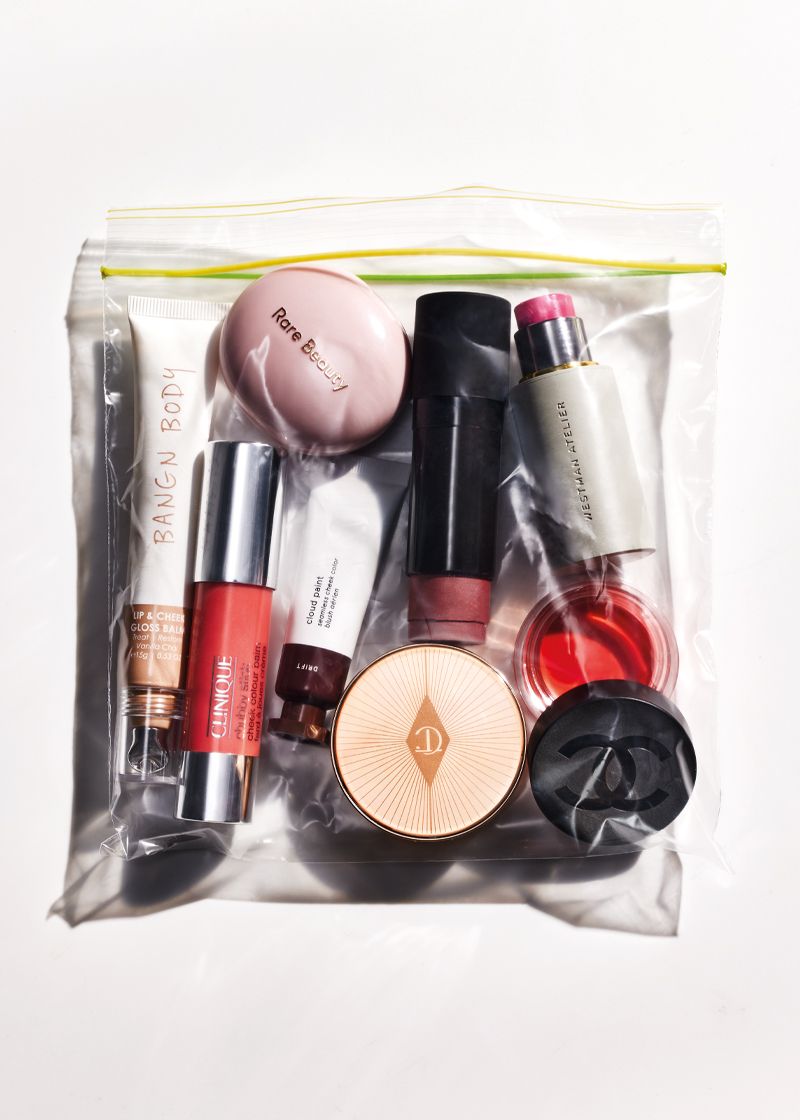
A beautiful world
Three writers reflect on the life-changing magic of travel
'Tough love in ARGENTINA'
A story about the lessons you almost miss when you're busy looking in the wrong direction, by Maeve Galea.
When I told people I was moving to Argentina for a year, they’d often get a glint in their eye. “Don’t fall in love,” they would say with a wink, as though falling in love in Argentina was one of those inevitable things that just comes with the territory, like suffering a bout of gastro in Bali or getting bed bugs at a hostel in Paris that charges €30 a night. I’m sure this is where I got it in my head that I was destined to meet the love of my life during my year abroad.
I arrived in Argentina on March 1, 2020. It was a Sunday. The drive from Ezeiza – home to Buenos Aires’ international airport – felt like I was being transported back in time. On the side of the highway, families gathered around an improvised coal barbecue, the boot of their clapped-out Renault Twingo from the ’90s open while the car played reggaeton from the radio. In the city, on almost every corner there was a small, dimly lit fruit and vegetable shop where the owner weighed everything using silver grocers’ scales, punching numbers into an ’80s-era cash register as the receipt emerged in staccato, recording the totals of each equation. Cash was still king, with people reaching into their pockets to reveal colourful wads of notes that looked suspiciously like Monopoly money, unfolding the doubled-over bundle and thumbing through the bills bearing endless zeros to find the right combination of greens and blues (you need a PhD in finance to understand Argentina’s economy).
My apartment – where I lived with two impossibly beautiful and well-connected actresses from Córdoba, the Melbourne to Buenos Aires’ Sydney – was surrounded by buildings designed in the late 19th and early 20th centuries in the eclectic style that has become emblematic of the city: a mix of Neoclassical, Art Nouveau and Art Deco. It seemed to me like the kind of place where one might be approached by a Gregory Peck lookalike while sitting streetside, sipping on vermouth and soda, and be whisked away on the back of a motorbike, Roman Holiday-style.
Of course, plunged into a draconian lockdown three weeks in, this theory became hard to test. A few months later, having only just started to emerge from lockdown, I felt sad, abandoned and desperate – and I couldn’t tell anyone for fear that they would worry, or worse, encourage me to come home (I was staunch in my determination to stay the course). I realised that if I wanted to meet someone – as was my destiny – I was going to have to take matters into my own hands.
After only a few exchanges on Bumble, I agreed to meet Francisco for a walk. I took a taxi to the other side of the city, an area I had never heard of that sat on the inner edge of the ring road that divided the city from the suburbs. When he walked out of his apartment building, I was mostly impressed by how tall he was. He was funny and tanned, having just arrived back from a year travelling in Brazil. He was almost a decade older than me, and I found it soothing to be in his presence. He invited me in for some maté and soon we were kissing. As I was waiting for my Uber, he hugged me, kissed me on the forehead and told me he wanted to see me on Friday. He said he was falling in love with me, which in normal circumstances would have been strange, but in this moment felt like the fulfilling of my destiny; a reason to stay.
After waiting all week for a text, I woke up on Saturday morning and he still had not texted. My roommate Maria found me crying in my room. She sat down, full of maternal energy, and said with a thick accent: “Swee-tee, welcome to Ar-hen-teen-a.” Turns out Argentine men basically invented love bombing. “He is chamuyero,” Maria told me, teaching me the Lunfardo – Buenos Aires’ local slang-uage – word for sweet talker. I had been conned. “In Ar-hen-teen-a, everything is hard,” she lamented. “Even love.” On Sunday – after watching the word ‘online’ appear and then fade under his contact on WhatsApp throughout the day – I sent him a message that read: “You are making me feel so sad.” On Monday he replied that he had met someone else.
A month later, I was sitting in a bar at a table full of friendly strangers. A man next to me asked me how I was finding the men in Argentina. I told him I found them confusing, and regaled him with the story of Francisco. He looked at me knowingly and sighed. “You were not crying because of him. You were crying because of you.” I was confused, assuming what he was saying was lost in translation. He sensed my confusion and continued. “If you are happy in yourself and feel you deserve love, then someone not replying to your message will not make you cry. You will think: ‘Their loss!’” I was taken aback, not because what he said offended me, but because it was true. I had put so much expectation on the idea that meeting someone and falling in love was the purpose of this trip, that every rejection – every first-date fumble, every text that went unanswered, every night that ended without a kiss – felt like a personal failure which pointed to me being uniquely unlovable.
This unsolicited but astute observation was a turning point. As we emerged further from lockdown, I shifted my focus from finding love to a much more fulfilling goal: having fun. In the next six months I met people who are now friends for life, I honed my language skills, and I fell in love with the sawtooth mountains and glacial lakes of Patagonia, the thunderous roar of the falls at Iguazu and the expansive Pampas grasslands of el campo (the countryside) that we would visit on long weekends, riding horses around country estates. I even got my Roman Holiday moment, as I was whisked around the city on the back of a Guzzi by an American diplomat with high cheekbones and jet-black hair. It wasn’t love, but it didn’t have to be.
'Uncommon PARIS'
What happens when you can't find beauty in the most beautiful place on Earth, asks Kathryn Madden.
Most stories about Paris open with the light. The silhouette of the Louvre at dawn, emerging from the shadows like a glistening mirage. The Eiffel Tower lit by the sun, a beacon for lovers and dreamers. Street lamps flickering to life at nightfall, their reflections dancing on the Seine. This story is different.
This story starts with the smell of burnt paper tinged with urine and sweat wafting from Bastille station. Eau de Paris Metro. It starts with a motley crew of seven – my family – stranded on an unassuming street corner on a September afternoon. Bleary eyed and travel weary, we’d arrived at our ‘charming four-bedroom Haussmann-style apartment’ in the 11th arrondissement to find, well, no sign of a charming four-bedroom Haussmann-style apartment. In its place was a laundromat framed by peeling cobalt paint and shuttered restaurants. “Laverie only,” insisted the animated attendant inside. “No ’otel. No appartement! My friend has Ethiopian diner down the road?” He was blissfully unaware, but he was right. There was no apartment. We’d been scammed.
This wasn’t the kind of thing that typically happened to my family. We were stacked with double-checkers and list-tickers, with seasoned travellers and frequent flyers, with engineers and academics who made a living out of over-analysing. People who weren’t supposed to fall prey to scam artists, even in 2010, the early dawn of internet booking sites. But then again, there was nothing typical about this trip, or how it came to be.
Three months earlier we’d been rocked, no, pummelled by the death of my dad. He and Mum had been holidaying in North America – sightseeing in New York and hiking in the Rockies. My parents’ relationship had first been built on far-flung adventures, and now as empty-nesters they were rediscovering that joy. But on the flight home, Dad suddenly and inexplicably struggled to breathe; by the time the plane made an emergency landing, it was too late. A coroner’s report came back with inconclusive findings. Dad was fit and healthy, but might have suffered an extraordinarily rare reaction to his blood pressure medication. It was incomprehensible and cruel. But for me, the details were almost immaterial. All that mattered was that the most important person had been ripped from our lives.
My parents had already booked a trip to Europe for later that year and, in the haze that follows an unexpected death, where the once-defined edges of life blur into sludge, we decided that Mum shouldn’t cancel her holiday. Instead, different friends and family members would join her on each leg of the trip, culminating in us all gathering in Paris for the final week. Which is how we wound up on that Bastille boulevard. There was my mum, so strong yet somehow smaller than before; my older sister Julia, who was uncharacteristically sobbing about the swindlers; an uncle and two of my aunts, who leapt into problem-solving mode; and one of Mum’s oldest and dearest friends, Bron, a warm and radiant presence always. She’d flown across the world with a bung knee and crutches to be with the family.
Arrangements were swiftly made and we found ourselves in a lovely if creaky 17th-century apartment on rue Saint-Honoré. The location in the 1st was more touristy than our original choice, but the chintzy interiors felt homely, and after a trying day it was somewhere to let our shoulders drop. Bellies empty, we trudged to a bistro for French onion soup and steak frites. My mum and aunt competed to speak their best French to the waiter, who eyed them blankly and responded in English. Glasses of crimson bordeaux were poured, and the crunchiest baguette served with the creamiest butter. A seat at the table was glaringly missing, but it was too painful and too cliché to talk about.
Over the next week, a comedy of errors ensued. One afternoon, Bron and I absentmindedly latched the second lock when leaving the apartment (despite warnings from my uncle about the intricate Louis XVI-era system), leaving us all stranded outside. Again. It would have been funny if everything wasn’t so heavy. Another morning, Julia and I left our coats in a Montmartre cafe; when scolded by the owner, my sister sobbed uncontrollably once more. Even Paris itself wasn’t serving the wonder I’d known and loved. Monet’s ‘Water Lilies’ looked different, just a mass of meaningless blue. Every Pierre Hermé macaron tasted the same.
So often, travel is painted as a golden chariot to transport us from ourselves, as if a cobblestone street or chocolate eclair can usurp years of therapy. I’m not sure that plays out beyond Hollywood scripts. And yet, like the movies, travel is nearly always life-affirming. It can spark magic when you least expect it, especially when you succumb to being a tourist. It reminds me of a story about my dad. In what would come to be his final days, he and Mum went to the top of the Empire State Building, a vantage spot from which to gaze at the enormity of the world. When they returned to ground level, they were prompted to purchase their obligatory photo taken in front of a green screen. “I think we’d better get it,” said Dad. This from a man who usually baulked at cheesy souvenirs and capitalist ploys, was most out of character. Fourteen years later, the picture still sits on Mum’s kitchen benchtop.
So in those final Paris days, as family members departed and dispersed and just four of us remained, we gave in and embraced the City of Light. We dressed in our best, clinked champagne glasses and booked tickets to Le Lido. Again, it was a left-field choice – the cabaret show is a tourist magnet, slammed for inflated prices and choreography that hasn’t been updated since 1992. But there in our red velvet seats, as a mime artist pulled silly faces and performed subpar comedy, we laughed in sync with a thousand others. Then we stepped onto the Champs-Élysées, heaving with people, as lights twinkled like diamonds on the Eiffel Tower above. It wasn’t typical or characteristic, but nothing ever would be again.
'One night in MIAMI'
Fawn Dolton experiences her own Before Sunrise moment.
It was six weeks before my wedding and with invitations signed, sealed and delivered, I was sent overseas on a work conference. Back then, trips like those overflowed with a schedule of incessant networking by day and heavy drinking by night – in equal parts exhilarating and exhausting. The location for this particular pre-wedding jaunt? Miami.
This was Miami in 2006, a time when the reality show Miami Ink was at its peak. The city pulsed with raw energy; its neon-lit labyrinth effervescent. Everything you’d heard about the South Beach pool scene was true. Stars like Gloria and Emilio Estefan would run with personal trainers in the early weekday mornings. The original Delano and Shore Club were the beach clubs to see and be seen at. If you wore enough makeup, and showed enough skin, there was a chance you could wind up in the background of a photo on the Perez Hilton blog. You went there prepared to make out with strangers. And Miami is exactly where he walked in; at the after-party of a work event, a million miles away from my home, and my soon-to-be husband. In classic meet-cute style, we found ourselves squeezed into bus seats en route to Collins Avenue after an evening on board a yacht (truth be told, it was less Miami Vice, more ferry hire). From the moment we met, he took my breath away. It was more than his French-American accent and his golden complexion; I’d never met someone with such a presence, someone with pheromones so wildly dense that I didn’t know whether to nuzzle into his undeniable masculinity or offer him my deodorant stick. My interest was piqued. And yet…
“I’m engaged,” I offered early on, and while noted, it didn’t deter the ebb and flow of our conversation. Along with our colleagues we hit the bar, we danced, we shared cigarettes and tequila shots. Talk flowed effortlessly, fuelled by cheap booze and even cheaper thrills. And when finally it came time to bundle our mutual friends into a taxi and send them on their merry way, we shared three tiny words that opened the floodgates to the remainder of the night: “One more drink?”
As we made our way to a low-lit corner of a South Beach dive bar, we walked side by side, our footsteps echoing against the pavement as we shared stories and secrets like old friends catching up after years apart. But beneath the surface of our banter, underneath his attempts to teach me French, lay a mutual but unacknowledged understanding that this was more than just a chance encounter. It felt real, in a world that felt decidedly not so. The longer we spent together, the closer I came to unravelling. “We should probably keep walking,” I’d offered, as we drained the last sip of beer and the weight of his arm resting on mine suggested that perhaps we both wanted to do so much more than walk.
As we wandered through the streets, we stumbled upon familiar landmarks, a glamorous, larger-than-life backdrop for an increasingly intimate conversation. From the steps of the former Versace mansion where the iconic designer was assassinated to the bustling energy of the aforementioned Miami Ink, he played the consummate tour guide where every location felt charged with possibility and every pause was an opportunity for our hands to brush against each other’s.
We’d walked the night away, arriving on the sands of South Beach just in time to sit and watch the sunrise. There were more pauses in our conversation by this stage, the all-nighter aided by temptation and adrenalin finally taking its toll on both of us. Beneath the surface of our now-weary banter lay an unspoken tension, a palpable longing that hung heavy in the dawn air. I didn’t want the daylight to arrive; the night had been so perfect. Our own noughties version of Before Sunrise playing out before my very eyes. I’d always loved that movie, and for those few hours, I’d lived it. The South Beach version.
Sitting side by side, we faced the body of water where the Atlantic Ocean meets the Caribbean Sea. I knew in that moment that if I were to turn my head and face him for a split second, I would change the course of my life forever. So I couldn’t turn my head. I wouldn’t. “It’s time for me to go home,” I stated. I’d been sharing a hotel room with a work friend and when I fell through the door not long after, she welcomed me home with a big glass of water, a listening ear and an offer to go out so I could sleep the morning away on my own. As I lay there, freshly showered and ready to close my eyes, I considered what would happen if he were to turn up and knock on my door there and then. Before I could answer the question, I was fast asleep.
My girlfriend roused me that afternoon, armed with a bunch of red roses, a note written in French and a story. Turns out, my Jesse from Before Sunrise had turned up to knock on my door there and then. But he’d bumped into my girlfriend, working from the hotel lobby. He asked her to let him into our room so he could deliver the flowers and say goodbye.
“She’s asleep. You’re not going up there.” “Please,” he’d asked. She stood firm. He handed over the roses and letter. “You know it’s better for her this way,” she offered before he left. I was thankful though slightly dashed that I didn’t get to see him one last time. Miami had her way with us and that was how this story would end. I was leaving that evening, and while I couldn’t take a bunch of roses on an international flight, I did pluck one from the bunch and I pressed it into my work diary next to the note that read: “Je n’ai jamais rencontré quelqu’un comme toi auparavant. Merci. Nous aurons toujours Miami.” Or for those of us who don’t speak French: “I’ve never met anyone like you before. Thank you. We will always have Miami.”
On my return home, I told my then-fiancé everything. I couldn’t in good conscience stand at the end of the aisle and profess my love with a big secret. Ultimately I think the incredible and tolerant man that he is felt at ease knowing that this played out before we said ‘I do’, and in the end, I chose him over whatever it was in Miami. He put the night down to pre-wedding jitters. Maybe it was. Maybe it wasn’t. But we’ve been happily married for 17 years.

Desert flower
She was the Australian model who defined an era of style and has since proven that, as an actor, she can hold her own with the greats. But for Abbey Lee, the journey is just beginning.

Secure goods
Turn heads at passenger screening with the season’s most-wanted accessories.

Every bit counts
Pint-sized versions of some of our favourite products so you can take a full kit with you anywhere, no matter how light you travel.